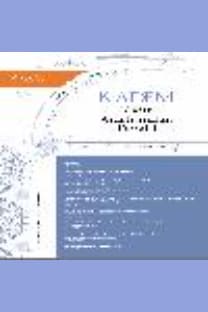Duygusal Sefaletin Düşünümsel Göstergeleri “Aile” Örneği
Sefalet kavramı toplumbilimi alanında süregelen çalışmalarla canlı tutulmaktadır. Proudhon’da Sefaletin Felsefesi, Marx’ta Felsefenin Sefaleti’ne dönüşürken, Thompson Teorinin Sefaleti’ni yazmakta; her üç biçim de sefalet göstergelerini anlamlandıracak araçlar sunmaktadır. Gösterilen araçlar, “modern dünyada” maddeden başlayan çözümleme biçiminin imkânını sorgularken; bugün, yani Beck’in tabiriyle “düşünümsel modern dünyada” kurumların duygusal katları açılmayı beklemektedir. Bu çalışmada duygu yüklü aileyi inceleme nesnesi olarak seçmekte, düşünümsel modern dünyanın tüketimcilik havzasındaki varlığını çözümlemeye çalışmaktadır. Hipotetik olarak, düşünümsel modern zamanlarda “ailenin kurumsal kimliğinin sefalete sürüklendiği” önermesi sorgulanacak; önermeyi test etmek amacıyla, “meta olarak aile” göstergebilimsel bir çaba ile mercek altına alınacaktır. Barthes’ın bakış açısıyla takip edilen göstergebilim yönteminin, ürün kodlarını ve bileşenlerini anlamayı sağlayacak veriler barındırdığı düşünülmektedir. Bu bağlamda,“aile dizilimi” ve “aile gelişim yayıncılığı” kesitleri sosyolojik çerçevede açımlanacaktır. Eldeki veriler neticesinde, ailenin kendi iç dinamiklerinde bulunan birliktelik, bütünlük, kaynaşma, saygınlık niteliklerinin piyasa kuralları yörüngesinde aileye tekrar hangi yollarla sunulduğu gösterilecek, kavram olarak ailede içkin olan duygudaşlığın dışarıdan ikamesini zorunlu kılan süreçler tartışmaya açılacaktır
Anahtar Kelimeler:
Düşünümsel Modernite, Aile, Duygusal Sefalet, Göstergebilim, Aile Dizimi
Reflexive Signs of Emotional Poverty: “Family” Case
The concept of poverty is kept alive through continuous studies in the field of sociology. While Proudhon’s The Philosophy of Poverty transforms to The Poverty of Philosophy of Marx, Thompson produced the Poverty of Theory. All three forms provide tools to explain the visibility of poverty in modern society. However,the emotions of institutions are expected to be unfolded today with Beck’s conception of the reflexive modern world. This study aims to understand what is shown by a new style of reading, attempts to analyze the visuality of the family in as ociety of consumption, which is trying to maintain its historicity with its identity as an institution. The proposition that the institutional identity of the family is drawn to poverty in reflexive modern times is addressed as a hypothetical. In order to test the proposition methodologically, family as a commodity will be examined through a semiotic approach. The semiotic methodology followed by Barthes is thought to contain insights that will help to understand product codes and components. In this context, indicators of new institutional cures, such as family coaching, family counseling centers or “family constellation”, are explored as a sociological phenomenon. From the data collected, the qualities of emotional unity, integrity, cohesion and respectability included in the internal dynamics of the family are questioned as to how they are presented in the frame the market rules. These processes are discussed in the respect that obliges the substitution of already existing combinations with those from the outside
Keywords:
Reflexive Modernity, Family, Emotional Poverty, Semiology, Family Constellation,
___
- Barthes, R. (2011). Çağdaş Söylenler. Tahsin Yücel (çev.). İstanbul: Metis.
- Barthes, R. (2012). Göstergebilimsel Serüven. Mehmet Rifat-Sema Rifat (çev.). İstanbul: Yapı Kredi Yayınları.
- Barthes, R. (2012a). Eleştirel Denemeler. Esra Özdoğan (çev.). İstanbul: Yapı Kredi Yayınları.
- Beck- Gernsheim, E. (1998). On the Way to a Post- Familial Family, From a Community of Need to Elective Affinities, Theory, Culture & Society, Vol. 15 (3-4): 53-70.
- Beck, U. (2012). Bir Yeryüzü Dini Olarak Aşk. Beck U. ve E. Beck-Gernsheim içinde, Aşkın Normal Kaosu. Nafer Ermiş (çev.). Ankara: İmge Kitabevi, s.329-392.
- Beck, U. vd. (2003). The Theory of Reflexive Modernization Problematic, Hypotheses and Research Programme. Theory, Culture & Society, Vol. 20(2): 1–33.
- Beck, U. ve E. Beck-Gernsheim, (2012). Aşkın Normal Kaosu. Nafer Ermiş (çev.). Ankara: İmge Kitabevi.
- Beck, U. (1994). Reflexive Modernization. Cambridge: Polity Press.
- Bourdieu, P. (2015). Ayrım. Derya Fırat Şannan ve Ayşe Günce Berkkurt (çev.). Ankara: Heretik.
- Cohen, D. B. (2006). “Family Constellations”: An Innovative Systemic Phenomenological Group Process from Germany. The Family Journal: Counseling and Therapy for Couples and Families, Vol. 14 No. 3, s.226-233.
- Eegunlusi, T. R. E. (2016). Africa, Poverty and Forces of Change: A Holistic Approach to Perceiving and Addressing Poverty in Africa. Open Journal of Philosophy, 6, 368- 391. http://dx.doi.org/10.4236/ojpp.2016.64035.
- Gardiyanoğlu, B. (2014). “Kadın” Olmayı Hatırlamak. İstanbul: Destek.
- Gottlieb, D. H. (2001). Voices of Conflict, Voices of Healing. New York: iUniverse, Inc.
- Hassan, I. (1993). “Toward a Concept of Postmodernism”, A Postmodern Reader, ed. Josep Natoli ve Linda Hutcheon. New York: StateUniversity of New York, s. 273-286.
- Hellinger, B. (2001). Love’s Own Truths. Phoenix, AZ: Zeig, Tucker and Theisen.
- Hellinger, B. (2003). Peace Begins in the Soul: Family Constellations in the Service of Reconci- liation. Heidelberg, Germany: Carl Auer International.
- Hellinger, B. (2013). “The Influence of the Zulu Culture on ‘Familien-Stellen’”, Personal Communication, Mayıs 23, 2013.
- Işınsu, T. (2013). Onu Kendine Âşık Et. İstanbul: Feniks.
- Komarovsky, M. (1964). Blue-Collar Marriage. New York: Random House.
- Marques, J.F.(2007). Interbeing. India: The Icfai University, Icfai Books.
- Marohn, S. (ed). (2010). Goddess Shift. USA:Bang Printing.
- Marx, K. (2011). Felsefenin Sefaleti. Ankara: Sol Yayınları.
- Okutan, B.B. (2013). Türkiye’de Popüler Kültür Din ve Kadın. İstanbul: Düşün Yayınları.
- Proudhon, P.J. (2012). Ekonomik Çelişkiler Sistemi veya Sefaletin Felsefesi. Işık Ergüden (çev.). İstanbul: Kaos Yayınları.
- Safa, P. (1970). Seçmeler. Ankara: MEB Yayınları.
- Thompson, E.P. (2015) Teorinin Sefaleti: Hatalı Bir Devridaim Makinesi. Ahmet Fethi Yıldı- rım (çev.). Ankara: Nika Yayınevi.
- Türkiye Sistem Dizimleri Enstitüsü, Sorular ve Yanıtlarla Sistem Dizimleri, TSDE ki Dergisi, Sayı 1, Kasım 2014, s. 5-12.
- Vitale, J. (2008). Zero Limit. Zeynep Esin (çev.). İstanbul: Pegasus Yayınları.
- Wallerstein, J ve Blakeslee, S. (1989). Gewinner und Verlierer- Frauen, Manner, Kindernach der Scheidung, München.
- ISSN: 2149-4878
- Yayın Aralığı: Yılda 2 Sayı
- Başlangıç: 2015
- Yayıncı: KADIN VE DEMOKRASİ DERNEĞİ
Sayıdaki Diğer Makaleler
Duygusal Sefaletin Düşünümsel Göstergeleri “Aile” Örneği
KADEM Kadın Araştırmaları Dergisi Mülâkat
Batılı Feminist Geleneğin İçinden Gelen Aykırı Bir Ses: Özne ve Fail Olarak Başörtülü Kadınlar
Toplumsal Dinamikler İçinde Kadının Yeri
Çalışma Yaşamında İkiz Rakip Üretimi: Kadının Kadına Engeli
Çocuğun Din Eğitiminde Ailenin Rolü
Uyum ve Ötekileşme Ayrımında Suriyeli Sığınmacılar
Çalışma Yaşamında İkiz Rakip Üretimi Kadının Kadına Engeli
Aileyi İlgilendiren Bazı Kur’âni Kavramların Semantik Analizi
